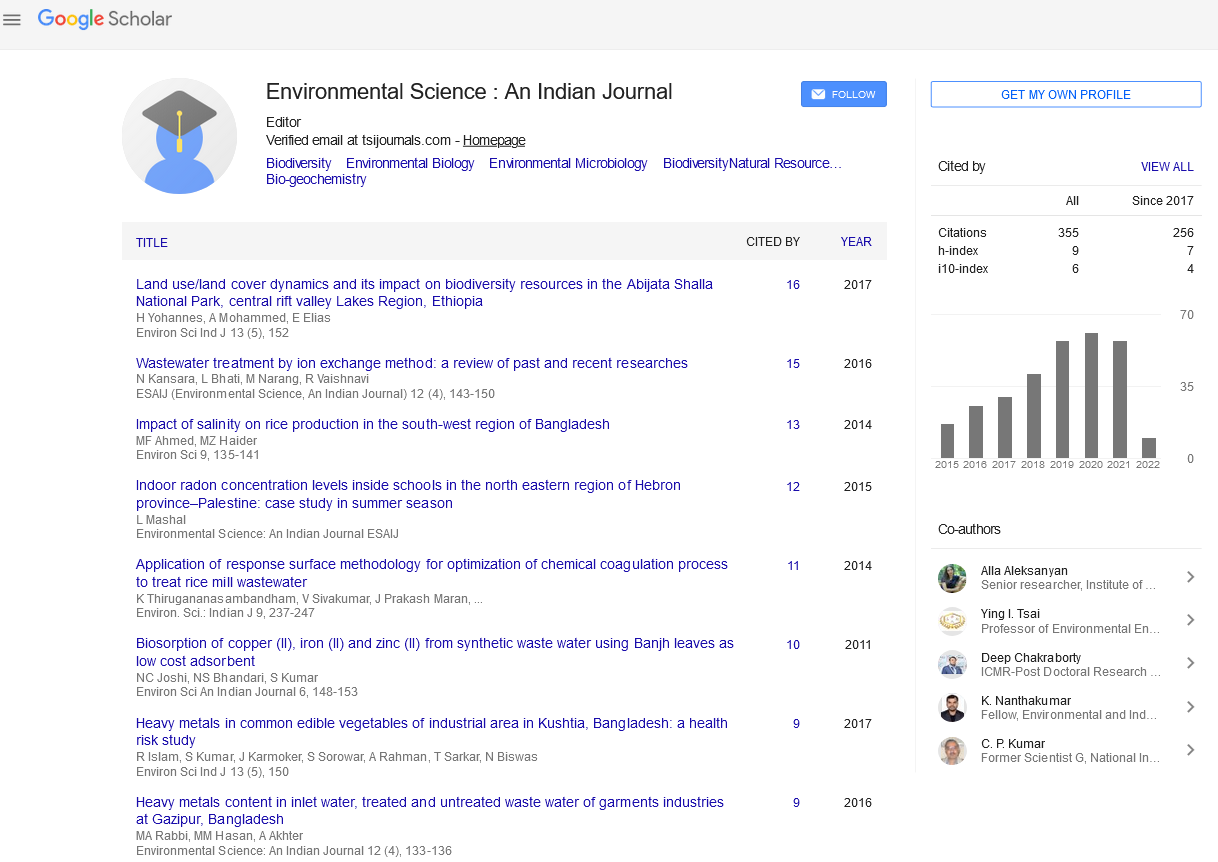Abstract
Barks or stems and their ashes of some herbal plants as sorbents in removing phosphates from waste waters
Author(s): M.Divya Jyothi, K.Rohini Kiran, K.RavindhranathExploring the use of bio-sorbents in controlling the phosphate pollution in waste waters is one of the main areas of present research on pollution control methods. In the present work, stems or barks and their ashes of Phyllanthus neruri, Pongamia pinnata, Annona squamosa. Cassia occidentalis are found to have strong affinity towards Phosphate ions. A thorough investigation has been made in optimizing the various physicochemical parameters such as equilibration time, pH and sorption dosage for the maximum extraction of phosphates from waters. It is found that % of extraction of Phosphate increases with time and increase of pH for a fixed adsorbent. With stem powder of Phyllanthus neruri the maximum extractability is found to be 90%while with its ashes the extractability increases to 98.0% under the optimum experimental conditions of pH: 10 and after an equilibration period of 5 hrs. Similarly, under the experimental conditions pH:10 and optimumequilibration time of 5 hrs, themaximumextractability is found to 87.0% with Pongamia pinnata bark powder and 95.0% with its ashes; 98.0% with powder of stems of Annona squamosa and 100% with its ashes; 89.0% with powders of stems of Cassia occidentalis and 92.0% with its ashes. Anions like Chlorides, Sulphates, Nitrates, Fluorides and Carbonatesmarginally effected the%ofmaximumextraction at the optimum conditions of pH and equilibration time while cations viz., Ca2+,Mg2+, Cu2+, Zn2+, Fe2+ and Ni2+ ions at concentration of 500 ppm are synergizing the extraction of phosphate and thereby%of removal of Phosphate is increased further.

